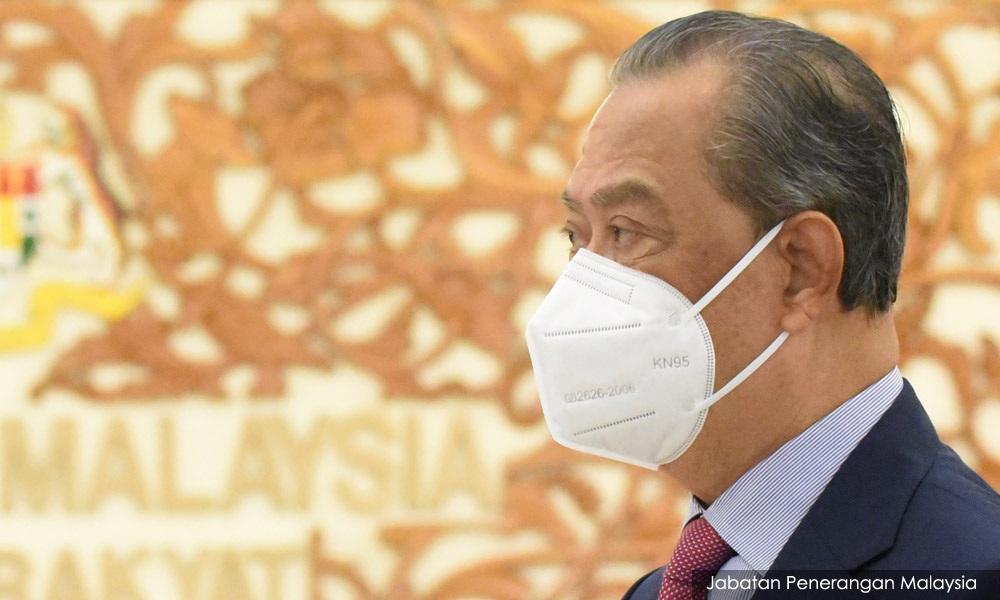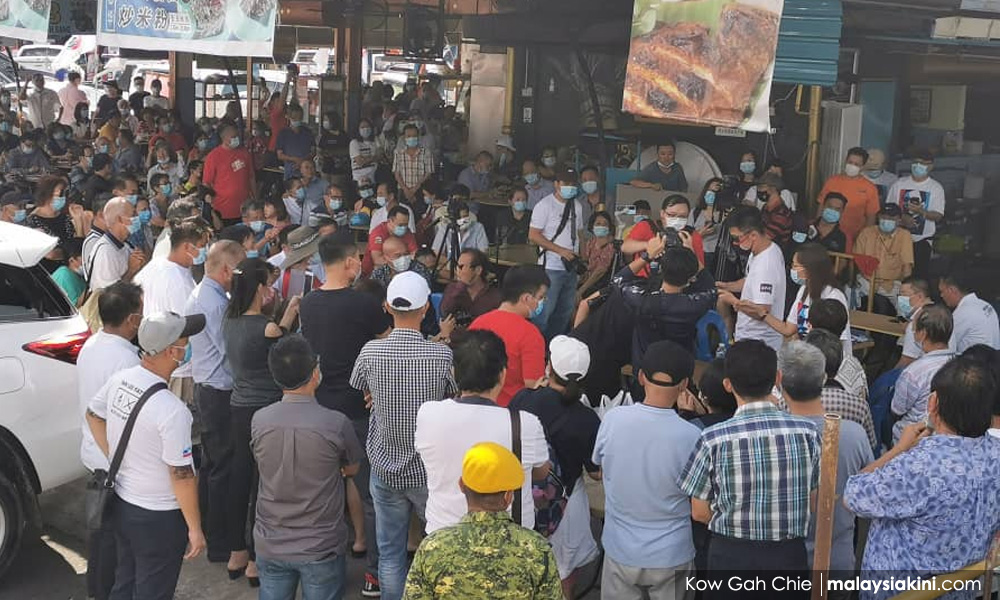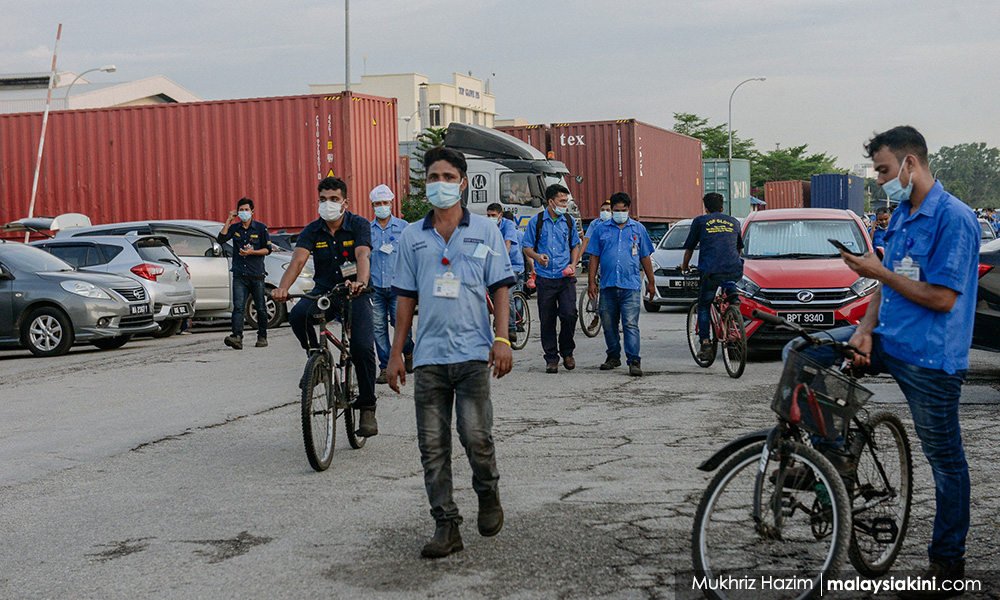The Perikatan Nasional (PN) alliance seized federal power through a political coup orchestrated amid a pandemic, forcing the new prime minister and his cabinet to hit the ground running to contain the outbreak.
At first, the measures implemented yielded positive results as the number of cases began to dwindle. But things soon spiralled out of control.
Since the first Covid-19 case was detected in Malaysia on Jan 25, 2020, the virus has claimed more than 12,000 lives nationwide.
It appears to have also dealt a fatal blow to Muhyiddin Yassin's 16-month-old administration as the prime minister is expected to step down tomorrow.
In an interview with Malaysiakini last week, former health minister Dr S Subramaniam (above) shared his thoughts on the issue.
He noted how the fragile government had to include politics into its Covid-19 mitigation plan to balance between saving lives and livelihoods.
“The PN government took this (came into power) at the beginning of the pandemic and it was not a strong government in terms of numbers. It had a flimsy majority from the word 'go'.
“So compromises had to be made, where there was a need to accommodate performers and non-performers,” he added.
Numerous important positions, Subramaniam noted, were given to certain quarters not based on their capabilities but rather as a reward for their support.
According to him, this situation was “unfortunate” both for the prime minister and the public.

“For the prime minister, it would have been a nightmare. I am sure he knew what was happening but he was unable to react because any reaction would bring about negative results.
“For the people, we are caught in a pandemic and at the same time, we have a government that is not strong and unable to make strong decisions.
“That is the reason for whatever that is happening now,” he added.
One of the cabinet ministers who had failed to inspire confidence during the crisis with his repeated faux pas was none other than the health minister himself, Dr Adham Baba.
The government was also criticised for flip-flopping on its Covid-19 policies whereas the move to declare a state of emergency to battle the pandemic was viewed with scepticism.
Muhyiddin’s political rivals and critics claimed it was aimed at preventing lawmakers from scrutinising his majority in Parliament and the daggers were unsheathed when cases and fatalities surged.
It went downhill from the Sabah polls
In the initial stages of the pandemic, Subramaniam said, the steps implemented were based on science and the wisdom of public health officials, which proved to be effective.
“The lockdowns were real lockdowns. The messaging was right... there was a lot of public trust in the messaging. So these helped to control the pandemic,” he added.
However, the fledgling government found it difficult to maintain the balance between lives, livelihoods and politics.
The Sabah election last September, Subramaniam said, was an example of this. The polls were called in the wake of another mid-pandemic political coup attempt.
“The election was not related to lives or livelihood. It was a political decision. Being a political decision, public health principles were not adhered to.
“Just prior to this, Sabah was seeing an influx of cases and to make it worse, we decided to have an election,” he added.

Unlike the July 2020 general election in Singapore where there were strict standard operating procedures (SOP) in place, Subramaniam said, the Sabah polls, true to the Malaysian spirit, had a carnival-like atmosphere.
“There were big crowds... No restrictions on the number of people, there were kenduri (parties) with people not wearing masks.
“On top of this, there was this uncontrolled movement of people from the peninsula to Sabah and vice-versa,” he added.
The former health minister, who is a practising dermatologist, lamented that even normal quarantine requirements were not enforced in an effective manner.
“We know that just after the election, Covid-19 started to spread in the peninsula... In fact, we have not recovered since then. To make matters worse, the Delta variant emerged,” he added.
Factory and workplace clusters
Without mentioning names, Subramaniam said there were those in positions of power who felt that economic activities should not be shackled for a protracted period and decided to open up several sectors.
Although ensuring the continuation of economic activities is crucial, he emphasised that decisions on this matter should be guided by science and dictated by public health.
“These cautions were not employed and in many instances, we saw the emergence of factory clusters and workplace clusters as well as clusters involving foreign workers, which was expected.
“This is because the culture of foreign workers is community-based living. They move around in groups, live in groups and eat in groups,” he added.

Apart from this, Subramaniam said the messaging became inconsistent, which in turn, confused and angered the public.
“Certain things were applicable to certain groups but not applicable to political leaders. Politicians were breaking the rules and the actions taken were not consistent.
“If you ask me why this happened (the surge in cases), it is because the scientific, health and political considerations did not come together,” he remarked. - Mkini




No comments:
Post a Comment
Note: Only a member of this blog may post a comment.